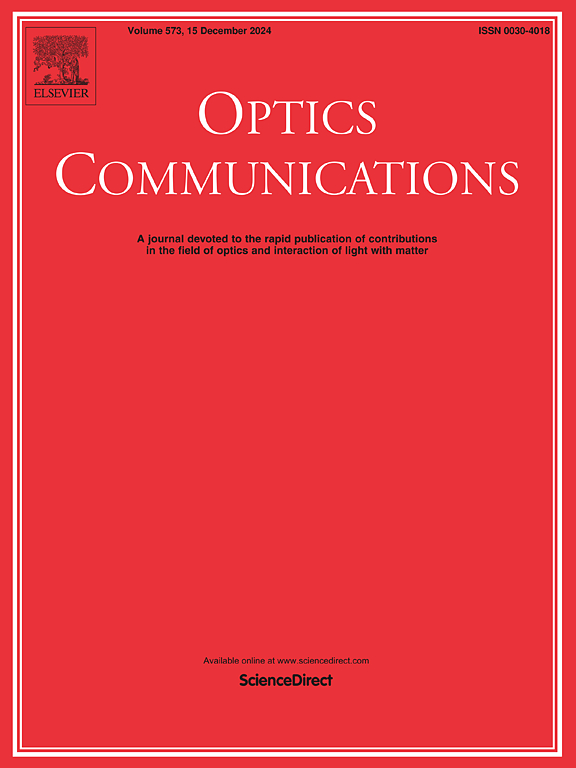Terahertz refractive index sensor based on triple-band absorption metasurface
IF 2.2
3区 物理与天体物理
Q2 OPTICS
引用次数: 0
Abstract
High-performance metasurface refractive index sensors are extremely promising for biosensing, petroleum, agricultural production, and security detection fields. We theoretically propose a terahertz refractive index sensor based on absorption mechanism, which can achieve an excellent triple-band absorber and high-performance refractive index sensor. The proposed triple-band absorber may achieve 90.22%, 98.87%, and 99.91% at 0.93, 1.12 and 1.45 THz, respectively. Multi-band response promises multi-point matching of the resonant frequency between the sensor and the measured substance, thus enabling a high-accuracy terahertz sensor. The refractive index sensor has the maximum sensitivity (S), quality factor (Q), and figure of merit (FOM) of 420 GHz/RIU, 71.54, and 21.4 RIU−1, respectively. The triple-band absorber is achieved by the combination of electric and magnetic dipole responses and the sensing performance is determined by localized electromagnetic field distribution. The proposed terahertz refractive index metasurface sensor has a promising application prospect in biosensing and critical parameter measurement for oil and gas wells.
求助全文
约1分钟内获得全文
求助全文
来源期刊

Optics Communications
物理-光学
CiteScore
5.10
自引率
8.30%
发文量
681
审稿时长
38 days
期刊介绍:
Optics Communications invites original and timely contributions containing new results in various fields of optics and photonics. The journal considers theoretical and experimental research in areas ranging from the fundamental properties of light to technological applications. Topics covered include classical and quantum optics, optical physics and light-matter interactions, lasers, imaging, guided-wave optics and optical information processing. Manuscripts should offer clear evidence of novelty and significance. Papers concentrating on mathematical and computational issues, with limited connection to optics, are not suitable for publication in the Journal. Similarly, small technical advances, or papers concerned only with engineering applications or issues of materials science fall outside the journal scope.
 求助内容:
求助内容: 应助结果提醒方式:
应助结果提醒方式:


